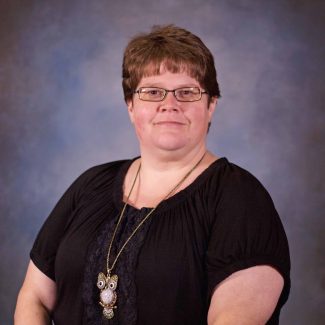Newman University will offer a brand new research course beginning fall 2018. College Research Literacy is an online, 1-credit hour introductory class all about research.
Director of Library Services Steve Hamersky and Reference and Instruction Librarian Jeanette Parker will co-teach the course. They both said they are excited to get this course up and running.
With so many courses at Newman adding intensive research projects to the syllabi, Parker said library staff are seeing many students with questions on how they can and should get started.
“We want to better equip our students to be able to do that (research successfully) to produce a high-quality finished product,” said Parker. “And as they go beyond — into graduate school or into the workforce — the skills they would learn in this class will benefit them.”
The course, which has been in the works for about six months, will be offered as an eight-week session class with two sessions each semester. So far, the class is not listed as a requirement for incoming freshmen.
Parker said, “The possibilities do exist for the future of this course — whether it’s required, or to use it as a pre-requisite. But I think just getting the class out there and getting it started and seeing where it goes is a big part of figuring that out.”
Bringing life to the course
Identifying the need for the new research skills course wasn’t hard. But developing the course structure and material was a different story.
Parker said she had to do quite a bit of her own research for the course, digging into how similar classes are taught, how to create this sort of class and what types of lessons to include.

“I’ve been reading a lot of research articles of other people talking about what they do, how they teach this type of class,” explained Parker. “Every conference I go to, I seek out people (who) are teaching a research class and pick their brain a little. I think we (Steve and I) have done a lot of brainstorming together, figuring out what would be most beneficial for the students and how we want to structure the class.”
Parker said one thing she is excited about is the anticipation of using an “open access” textbook. This avenue allows the students to take the course with very little additional cost. Parker researched several textbook options for the class but became discouraged quickly.
“The cheapest option I found was $50, and I really didn’t want the students to have to pay that much extra for an eight-week course,” she said.
That’s when she began researching the open access option, which means students will not have a textbook cost.
“It’s a whole movement that’s going on in higher ed,” Parker explained. “The books are really high-quality material. We’re looking at one from State University of New York. They’ve developed a textbook they use for their classes and we can post that into our Blackboard course information for the students to download. The material is even flexible, so the professor doesn’t have to use the whole book. They can cut and paste the sections and chapters they want to download for their course.”
Hamersky said, “As these resources become more readily available in all the disciplines, I think you’ll find that more and more professors will be adding the open access option to their courses.”
Benefits that matter
Parker said getting students on board shouldn’t be too tough, considering they are seeing the need on a daily basis.
“They are already coming to us, asking a whole mixed bag of questions,” she said. “This class will help them be more confident in their abilities and to better understand how information is organized. Also to understand what the value of information is and how to use that to their advantage.”

Hamersky and Parker said the top two questions they are asked on a regular basis are “How do I get started?” and “How do I cite?”
They will answer these questions and many more during the scope of the eight weeks.
In-depth research is not something taught in high schools anymore and is something that college students are struggling with, said Hamersky.
“There are no librarians in most high schools,” he said. “The librarians used to be there to help teach this to students, and that’s just not the case anymore.”
But by enrolling in this course at Newman, students will walk away with new skills and knowledge about how research works. The course will offer equal time to research and citing.
“There will be a lot of online tutorials and quizzes in this class,” Parker said, “but the final assignment will be a small annotated bibliography. This will help give students some experience since there are so many instructors who require them to do that as part of their process.”
Parker added, “I think … they’ll become more skilled researchers and have an easier time beginning the research process. Hopefully, the students will gain a stronger foundation in that ability.
“Any student, in any field, they are going to benefit from this class.”

